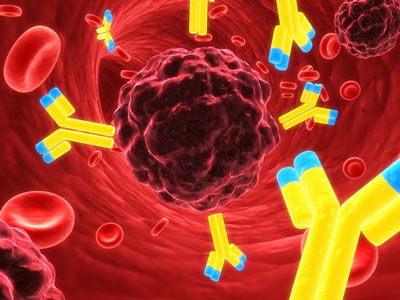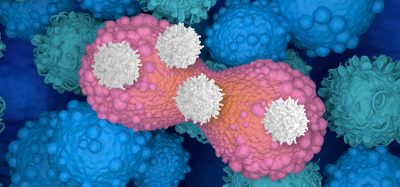New research describes blueprint for truly personalised cancer immunotherapies
Posted: 23 April 2015 | Victoria White
An article describing an important scientific foundation for the clinical development of truly personalised cancer immunotherapies has been published…


BioNTech AG, a fully integrated biotechnology company developing truly personalised cancer immunotherapies, announces the publication of a scientific article on therapeutic immune responses to cancer in Nature.
The paper shows an important scientific foundation for the clinical development of truly personalised yet broadly applicable cancer treatment for any patient. This publication represents results from an interdisciplinary collaboration between scientific and clinical teams at TRON, La Jolla Institute for Allergy and Immunology and BioNTech AG to elucidate novel cancer immunotherapy principles, translate these into individually tailored mRNA cancer vaccines and progress clinical development to provide new treatment options for cancer patients.
The article entitled “Mutant MHC II epitopes drive therapeutic immune responses to cancer” describes a novel immunological principle relevant to cancer immunotherapy and how this translates into patient specific mRNA cancer vaccines targeting multiple mutations. Ugur Sahin, co-founder and CEO of BioNTech and colleagues, identified tumour-specific mutations capable of inducing immune responses in mouse models of skin, breast and colon cancer, and showed that a large fraction of these mutations can be recognized by immune cells called CD4+ T cells. The study shows that the proportion of mutations recognized by immune cells is at least ten times higher than previously reported. The finding is extremely important as immune recognition of tumour-specific mutations has been previously shown to be required for clinically successful cancer immunotherapy.
Biomarkers are redefining how precision therapies are discovered, validated and delivered.
This exclusive expert-led report reveals how leading teams are using biomarker science to drive faster insights, cleaner data and more targeted treatments – from discovery to diagnostics.
Inside the report:
- How leading organisations are reshaping strategy with biomarker-led approaches
- Better tools for real-time decision-making – turning complex data into faster insights
- Global standardisation and assay sensitivity – what it takes to scale across networks
Discover how biomarker science is addressing the biggest hurdles in drug discovery, translational research and precision medicine – access your free copy today
BioNTech’s aim is to make truly personalised cancer immunotherapies affordable and broadly available
Ugur Sahin, CEO of BioNTech, said: “This novel insight indicates that most human cancers may be eligible for successful cancer immunotherapy. However, every patient’s tumour possesses a unique set of mutations that must first be identified, which means that targeted vaccine approaches need to be individually tailored. Our aim is to make truly personalised cancer immunotherapies affordable and broadly available.”
The paper outlines a novel technology solution that uses this insight for truly personalised cancer immunotherapies. It describes a blueprint for personalised yet broadly applicable cancer treatment. This involves computer assisted design of a tailored cancer vaccine using a patient’s cancer genome data – the ”mutanome”. It also confirms that ”just in time” production of a patient specific mRNA cancer vaccine, that importantly targets multiple mutations, is feasible.
These discoveries have already been implemented by BioNTech in a first-in-concept clinical trial (NCT02035956) in melanoma, using its fully integrated and operational process from sequencing each patient’s tumour to delivery of that patient’s individualised cancer vaccine. This approach can either be used as a standalone treatment or combined to improve the clinical success of checkpoint blockade treatment. Further studies are being planned. BioNTech owns all commercial rights for the exclusive exploitation of the entire concept.
Related topics
Oncology
Related conditions
Breast cancer, Melanoma
Related organisations
Cancer Research







